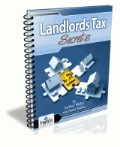Ltd Company or Sole Trader?
Question
I am thinking of buying and selling property as a business (not keeping them and letting them out). I would be aiming at turning over only 2 or 3 properties a year to start with. Would it be better tax wise to be a sole trader or to form a ltd company. Arthur Says There is not a great deal between a ltd. co. and a sole trader in these circumstances, but a ltd. co. has the following advantages: 1. Limited liability, should things go wrong. 2. If income earned is not required immediately, then it can be retained within the co. and the present (corporation) tax suffered will be only 19% (say), and further tax will only be payable at a later date when dividends are extracted from the co., whereas a sole trader will be liable to tax on all his profits immediately, possibly at 40%. 3. Tax is payable earlier by a sole trader than by a co., payments on account on 31. Jan and 31. Jul for a sole trader as opposed to 9 months after the end of the accounting period for a ltd. co. 4. A sole trader will be subject to Class 2 and Class 4 National Insurance. Against these is the fact that things are simpler to run as a sole trader than in a ltd. co.
Case Study
|

To enrol in the 7 tax saving strategies email course complete the form below. The first module will be emailed to you immediately.

 UK Property Tax Q&A
UK Property Tax Q&A
